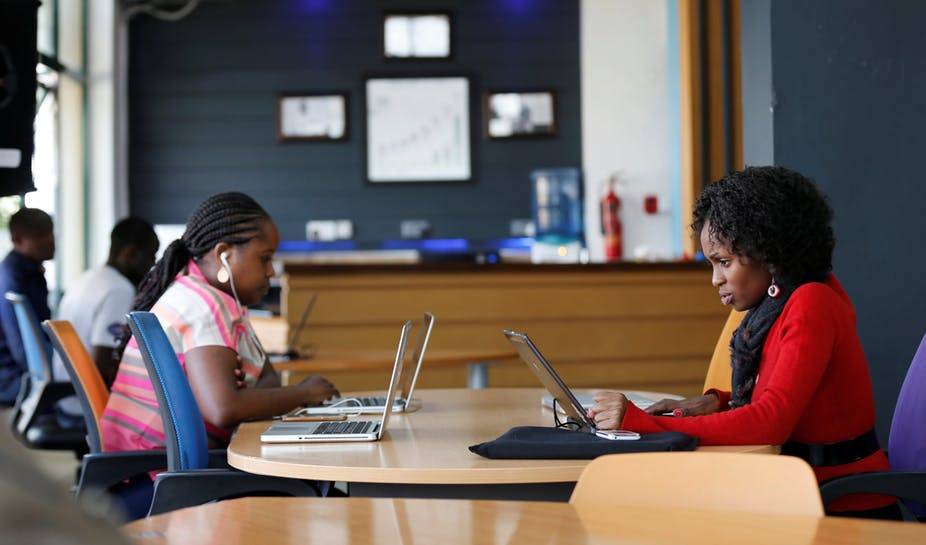USD 1 Mn Incubation Center Fund Has Been Devoted To Foster Student Entrepreneurship

Africa has experienced its strongest growth since 1970, especially as 15 African countries entered a second decade in which they saw strong annual economic growth rates of 5.3 percent. Nonetheless, many parts of the regions are underserved, and poverty is still at large.
In some Sub-Saharan countries, poverty rates yet exceed 70 percent. The World Bank Doing Business Report reveals that the continent fell from third place to fifth in ranking by region on the pace of business regulation reforms. Sub-Saharan Africa is currently the region with the second highest unemployment rate, at 91.8 percent.
For these reasons and a couple of others, African policymakers are increasingly turning to business incubation, as they view the sector as a means to unleash human ingenuity, enable competitiveness and create sustainable jobs.
Also instrumental in the development of new economic sectors, business incubation in Africa provide support for small enterprises to overcome business skills, infrastructure, market linkage, and financing.
One of the places where business ideas are formed, needing technical support, is universities. In sight of providing exposure to information and communication technologies to help increase the productivity and market reach of college-born businesses, and to foster a spirit of entrepreneurship among Africa’s young, a new USD 1 Mn facility has been sanctioned for the development of incubation centres in some African universities.
The Inter-University Council for East Africa (IUCEA), a part of the World Bank-supported Africa Centers of Excellence for East and Southern Africa Project (ACE II) has earmarked incubations centres that will be hosted at the four Africa Centers of Excellence (ACEs).
Each centre will be given USD 250 K in financial awards, under the auspices of a World Bank grant. The seed funds will go into the establishment and development of these regional incubations centres for East and Southern Africa.
The ACEs picked to host the Incubation Centers are at the University of Rwanda’s African Center of Excellence in Energy for Sustainable Development, at Tanzania’s Nelson Mandela African Institution of Science and Technology, Center for Pharm-BioTechnology and Traditional Technology, Mbarara University of Science and Technology, Uganda and the Center of Excellence in Phytochemicals, Textile and Renewable Energy based at Moi University, Kenya.
After receiving 15 proposals sequel to a June 2018-issued call, the IUCEA issued a co-financing arrangement in the four priority areas of the ACE II Project, accounting for health, industry, agriculture, and education/applied statistics.
The IUCEA and the World Bank collectively reckon that building incubation centres will lend a hand in establishing and developing critical linkages between academia and industry to help galvanize business growth in these priority areas that are critical to long-term growth and development of the region
According to Dr K. A. Appiah, a member of the Regional Steering Committee of the ACE II project who chaired the Independence Selection Panel, “We hope that more funding can be made available by host governments and other institutions to fund other incubation centres.
Our international team of experts were very impressed and eager to work with the selected ACEs to ensure that the selected incubation centres are successful in commercializing research innovations towards job creation and economic growth.”
“The World Bank believes strongly in the innovation potential of African research, as a key lever in the continued economic development of the continent, and these incubations centres will serve as important hubs where the impact of research can be transformed to commercial opportunities. We hope these centres will be the first among many to follow,” said Dr Roberta Malee Bassett, Senior Education Specialist, World Bank and Task Team Leader for ACE II Project.
The University of Nairobi, one of the most entrepreneur-friendly academic institutions in Africa, has an incubation center known as UoN’s C4DLab, while the Stellenbosch University hosts LaunchLab, supporting student-run businesses and faculty ventures. There are many more of such, including in the University of Cape Town, Kenya’s Strathmore University and American University in Cairo.
Featured Image Via The Conversation